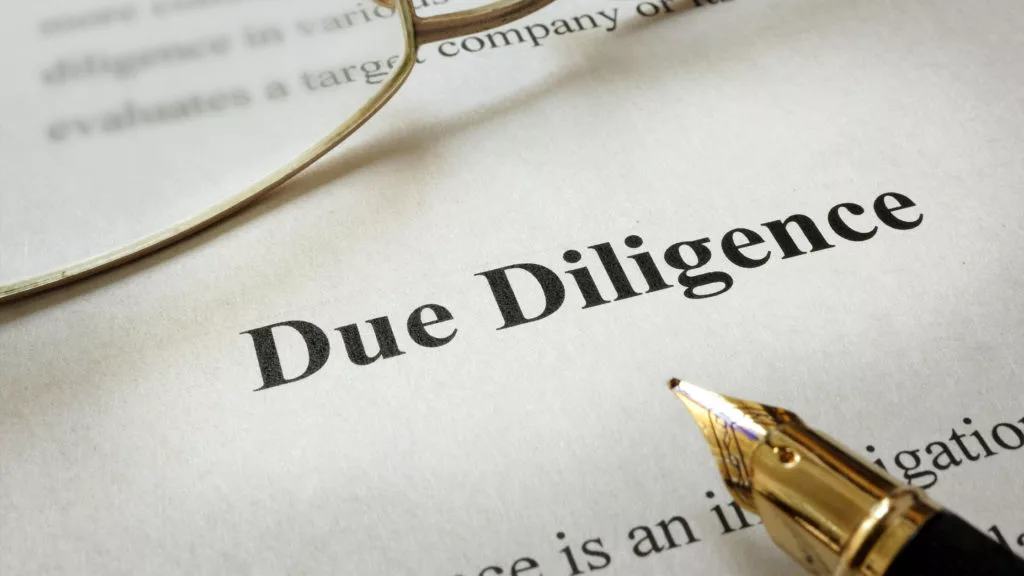- Posted on April 6, 2022
- by Benedict Dohmen
Home / Selling Your Amazon Business / The Unsurpassed Due Diligence Guide for Amazon FBA Sellers
The Unsurpassed Due Diligence Guide for Amazon FBA Sellers

If you’ve set up a successful FBA business and are planning to sell it, then this is as great a time as any!
Before you entertain queries by prospective buyers, you’ll need to meet certain criteria as part of the FBA due diligence process. While it may seem overwhelming (the list of due diligence parameters is long!), we’re here to help you figure out what to expect.
Read on to discover what you need for the due diligence as a seller when a potential buyer decides to look into your business.
Table of сontents:
What is the purpose of due diligence?
Simply put, due diligence when buying an Amazon FBA is an inspection, appraisal, and check-up, all rolled into one process. Not sure what that means? Consider this:
Buyers have to determine whether your business
a) is well-established,
b) has potential for scaling up, and
c) is healthy before making you an offer.
They also need to establish the value of your business. To do that, they need to examine or inspect all aspects of your FBA business.
For you to be able to sell your business without hiccups in the buying process, it’s important to be prepared with the relevant FBA business documents and data. The better you look on paper, the higher the chances of getting an attractive payout and closing a deal on time. If everything checks out, a buyer can make an offer as early as 48 hours and close the deal within 30 days after both parties agree on the discussed terms and sign the required paperwork.
Amazon FBA due diligence checklist
Preparing for an FBA due diligence process in advance is smarter than being caught off guard when a buyer approaches you. That way, you won’t need to hurriedly collate the material that the buyer needs to review.
We’ve put together a due diligence guide that can serve as a solid starting point. This will help you dodge potential pitfalls and ensure a smooth transaction between you and the potential buyer.
Organize financials
You should already be using a digital accounting service to keep track of transactions. A buyer will need to assess your historical accounting records to review the financial health of your FBA business. Be sure that the accounts are prepared correctly and that the valuations and corresponding numbers are accurate.
These are the documents you will need to organize:
- Financial records of the previous years (you’ll need at least two years’ worth of data to present to the buyer)
- Revenue financials
- Inventory data
- Filed tax returns of the last two years
- Financial operations of the business
Ranking, reviews, and ratings
A prospective buyer will look at your Amazon ranking and customer ratings and reviews to get a better idea of how your business and products are performing on the eCommerce platform.
Whenever you make a product sale, contact the customer if possible and ask them to review and rate your product. If the customer is hesitant, you could incentivize the customer to review and rate your product by offering them discount codes for website orders or in-store purchases.
You can also improve your Amazon ranking by optimizing your product listings with the right keywords, text, and images and investing in PPC campaigns. This will increase your prospective buyer’s interest in your business and its offerings.
Whatever route you take, ensure that you grow your business organically. While it is tempting to take shortcuts, you wouldn’t want to risk the sale, would you?
Check your inventory
The number one mistake sellers make is keeping products in bulk that do not generate sales. Not only will this increase your storage costs, but it can create a dent in your business valuation. After all, no prospective buyer would want to be saddled with inventory that won’t move.
Review your inventory and decide what to weed out from your product listings. As taxing as this is to perform regularly, maintaining an updated inventory is crucial to position your business positively. It’s best to take advantage of Amazon’s tools that make it easy to track your products. If you need more motivation, consider this: Your account will be inspection-ready even before a buyer asks for access to your Seller Account.
Here are the things to make sure are sorted and error-free before a buyer evaluates your inventory records:
Duplicated lists of inventories
As a violation of Amazon’s policies, products that appear as potential duplicates will force the platform to flag the listing. These products are then tagged as rejected or suppressed if the issues are not addressed in the stipulated time. Simply visit your Seller Central portal and review your product listing for duplicates. Once you respond and review your inventory for duplicates, your listing will remain unaffected.
Blocked and suppressed listings
This scenario can occur if you violate other parameters, such as not following the appropriate word count, uploading blurry images, plagiarizing content, or not fixing pricing errors, to name a few. Your inventory then runs the risk of being blocked or suppressed if not fixed on time.
Discrepancies brought to your attention on the Seller Central should be immediately resolved to avoid account deactivation and a dip in sales. A buyer shouldn’t spot issues related to inventory, so maintaining a squeaky clean record will be beneficial when the time for due diligence rolls around.
Review your business valuation
It’s important to know how much your business is worth by calculating its projected valuation. The best way to estimate this is by tracking your business’s earnings for at least a year. Calculate how to get your baseline valuation figure by assessing certain business criteria, coming up with a figure to represent said criteria, and then multiplying that number with your business’s average monthly net worth.
Here’s the list of criteria to consider when calculating your business valuation and net profit:
- Comparing your business to the market value of a similar venture
- List and proof of assets that support your business’s worth
- Market research on small businesses that sell similar products
- Records on social media presence, customer base, past/present collaborations, and other parameters that can increase the valuation
- Peak sales records (extremely valuable information that a buyer will want to look into if certain products tend to sell better during this period)
If you aren’t sure how to do it Benitago offers a Free Business Valuation within 24h. In this way, your will understand your weak points and you will know where to pay attention and create your scaling plan.
Key takeaway
Once you have all these documents ready and immediately accessible to you when a buyer comes forward, the due diligence process should be very easy.
Before you sign on the dotted line, give the official documents a thorough read and prepare to hand over your login credentials and contact information should the buyer need any future assistance.
And there you have it! The due diligence process when selling an Amazon FBA business doesn’t look so overwhelming now, does it?
Now it is your turn – do you have a question for the Benitago team? Or maybe you want to start a conversation with like-minded individuals? Feel free to share your thoughts in the comment section below!

Related Posts.

- Posted on February 24, 2022
- by Benedict Dohmen
- Posted on February 18, 2022
- by Benedict Dohmen



